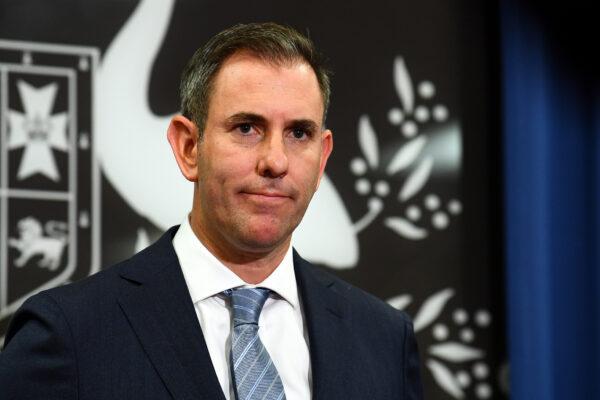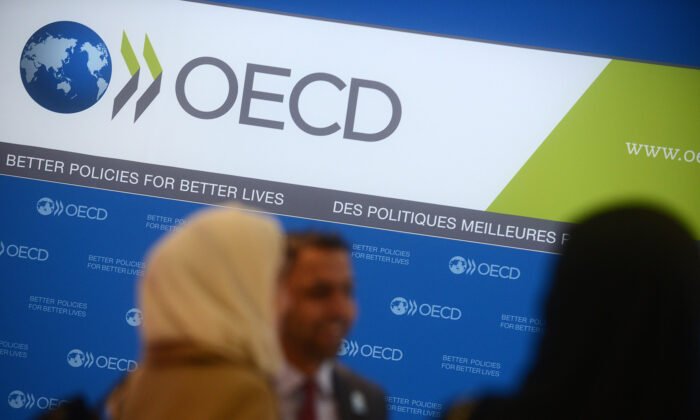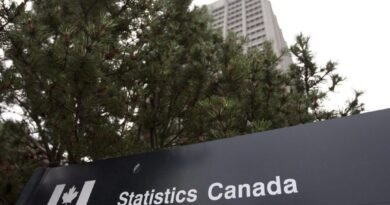OECD Predicts Australia’s Official Cash Rate Will Remain Unchanged in 2024
The OECD projects that Australia’s official cash rate will stay at 4.35 percent before falling by 0.75 percent between the third quarter of 2024 and the end of 2025.
The Organisation for Economic Co-operation and Development (OECD) forecasts that Australians are unlikely to witness any further interest rate hikes in 2024.
In a newly released global economic outlook report, the OECD outlined its predictions for Australia’s economic conditions in the next two years and the probable actions of the Reserve Bank of Australia (RBA).
It then projected a 0.75 percent decrease in the official cash rate between the third quarter of 2024 and the end of 2025.
The OECD cited several reasons for its forecast, including an expected reduction in the budget deficit in 2023 due to a significant increase in tax receipts from businesses and households.
It also anticipated a slowdown in economic growth in 2024 and 2025 due to the impact of policies.
The OECD also mentioned that the federal government’s Energy Price Relief Plan, which includes a price cap on wholesale coal and gas prices and energy bill relief, could lower headline inflation by 0.75 percent by the second quarter of 2024, and consequently affect the RBA’s decision to maintain interest rates.
Australia’s Unemployment to Rise
The report anticipated that Australia’s real GDP growth would decrease from 1.9 percent in 2023 to 1.4 percent in 2024, but would rebound to 2.1 percent in 2025.
“The cumulative impact of higher interest rates and cost of living pressures will decrease spending by households and businesses over the next year, although this will be partially offset by sustained strong working-age population growth, and the continuous recovery in education and tourism exports,” it stated.
The OECD also projected that Australia’s unemployment rate would gradually rise to 4.4 percent by mid-2025 while predicting a slowdown in goods and services price growth due to decreasing global inflation pressure.
The Australian quarterly consumer price index rose by 5.4 percent in the 12 months to the September quarter, down from 6 percent and 7 percent in the previous two quarters.
In terms of challenges, the OECD stated that Australia faced fiscal pressures from rising costs associated with population ageing and the transition to net zero.
“Annual fiscal costs from health and long-term care are expected to increase by 0.8 percent of GDP between 2023 and 2040,” the report mentioned.
To address the growing government expenditures, the OECD recommended that the Australian government increase revenue by reducing private pension tax breaks, as well as raising or broadening goods and services tax (GST).
However, Treasurer Jim Chalmers dismissed the OECD’s recommendations, stating that it was not a focus of the government at the moment.
“We’ve got a pretty full book when it comes to difficult tax reform, and we’re trying to advance that through the Parliament as we speak.”

Westpac Bank Predicts Interest Rates to Remain Unchanged in December
The OECD’s report comes as Westpac Bank, one of Australia’s big four banks, reaffirms its forecast that the RBA would keep the official cash rate unchanged in December.
The economists also said there was not enough evidence of an increase in inflation from economic data since November that could prompt the central bank to take action.
“October retail sales were soft; unemployment and underemployment are drifting up as expected; and business surveys are pointing to price pressures easing from high levels,” they said.
“Together with the downward revision in the RBA’s wages forecasts, we do not see an upside surprise on inflation—and so a reason for the RBA Board to move again this month—coming from this source.”






